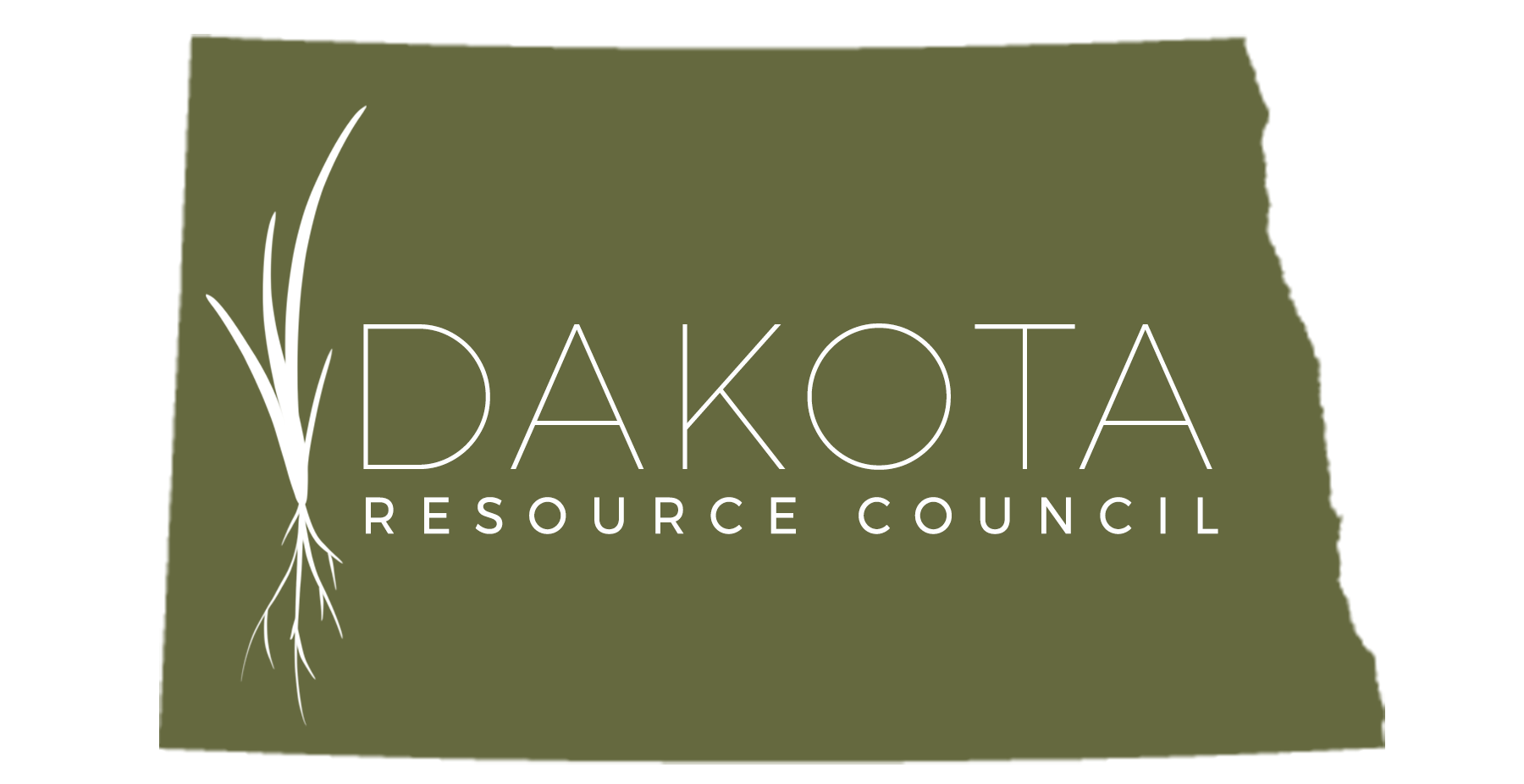Dakota Resource Council
Oil and Gas
Over the past decade, the application of hydraulic fracturing technology (fracking) has resulted in a new boom in oil drilling. Because of fracking, one inaccessible oil can now be reached boosting North Dakota to the second largest oil producer in the country. While oil and gas fracking has created new jobs and other benefits, it has also resulted in serious impacts to public health, air, water, land and North Dakotans quality of life.
Expanded production and potential impacts have increased the need for full and effective regulation of oil and gas production. DRC is the only grassroots group in ND with the track record and credibility to lead this fight.
Oil & Gas Transportation
DRC and its members work to improve upon the current methods of transporting oil and gas products. Pipelines need to sited and constructed responsibly and be in compliance with all the applicable laws. Bakken oil has a low flash point which means it can ignite at a low temperature. DRC pushed regulators to set better standards to require that highly explosive (volatile) Bakken oil be conditioned or processed to remove its most explosive compounds which to make oil transported by rail or pipeline safer.
We also have worked to encourage the state to require that Bakken oil be stabilized. Stabilization is a process that lowers vapor pressure which is the amount of force that a gas exerts on its container, think of a shaken can of pop. Shaking increases the pressure inside the can. Reducing the vapor pressure reduces the explosivity of the product; think of opening that shaken can of pop but instead of it being filled with pop, it’s filled with a mixture of oil and gas.
You can see why DRC members see the importance of reducing volatility and vapor pressure of an oil that has a low flash point.
Air Pollution
Flaring is the burning of raw methane or fracked gas on location. This occurs when there are no gathering lines or other infrastructure to capture the fracked gas for processing. Companies choose to treat fracked gas as a by-product that has little or no value, so it’s cheaper for them to vent or flare fracked gas than it is to invest in infrastructure to process and sell it. http://www.worc.org/media/Flaring_Boom.pdf .
Venting, which is the release of fracked gas into the atmosphere without burning, occurs but is illegal in North Dakota. Both flaring and venting cause damage to the environment and to human health, both waste a valuable natural resource, and both deny the mineral owner(s) royalty money because the gas is wasted not sold. Along with venting and flaring, faulty and/or aging oil infrastructure increases emissions that are harmful to the health and well-being of people and all things living near to flares. Stacks that are venting are loud and flares cause both light and noise pollution as flares burn bright and sound like a jet engine as the flames roar.
DRC members were instrumental in the passage of the 2014 ND Flaring Policy and the Obama era Methane Rules.
Oilfield Waste
Oil production creates hazardous waste materials that require proper and careful disposal. Whether it’s “saltwater” (also known as “brine” or “produced water”) resulting from the fracking process or it’s solid waste, each needs to be handled and disposed of properly. Produced water is many, many times saltier than sea water and has a variety of radioactive and other toxic constituents. It sterilizes the land when it is leaked from a pipeline or disposal well, spilled during transport, or disposed of improperly. Solid waste includes drill cuttings from wells and other drilling as well as fracking filter socks which are used to filter solids out of produced water as it comes out of the ground in the fracking process. DRC members have successfully opposed oil & gas waste facilities that posed threats to their communities. http://www.worc.org/media/notimetowaste1.pdf
Siting
Finally, DRC and its members are very concerned about where industry sites wells, pipelines, refineries, mines, etc. DRC believes that our members are the experts of their lives and their communities, so we help them fight for the communities that they want. Oil and gas extraction often creates winners and losers in a community and can damage once good relationships between neighbors. The industry does everything they can to pit neighbor against neighbor; the old divide and conquer strategy.
One of DRC’s goals is to strengthen communities and create an understanding that industry is dividing neighbors for its own benefit by creating winners and losers. Whether it be a refinery on the doorstep of Theodore Roosevelt National Park, or a well pad that benefits the mineral owner at the expense of the surface owner.
DRC aims to create a sense of community across geographic and cultural lines so that people work to industry accountable. DRC’s goal is to encourage responsible development. This means oil & gas development that is done in a manner that does not destroy the land or divide communities.






